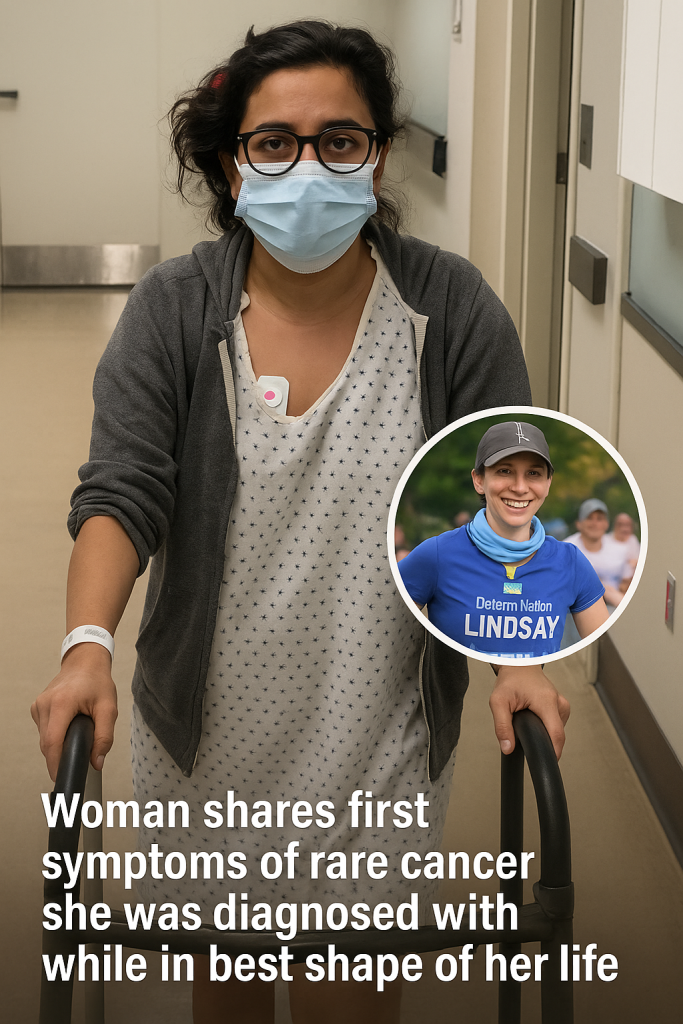Lindsay Teta, a vibrant woman in the best shape of her life, recently shared her harrowing journey after doctors initially dismissed the early signs of a rare cancer she was eventually diagnosed with. Her story is shedding light on the challenges patients face when early symptoms are misinterpreted, delaying crucial diagnosis and treatment.
In early 2024, Lindsay began experiencing subtle but persistent symptoms that seemed out of place given her active lifestyle and overall good health. According to Lindsay, what started as mild abdominal discomfort and fatigue was repeatedly attributed to common, less serious conditions by medical professionals. Despite her insistence that something felt wrong, initial tests and consultations did not reveal the underlying cause.
“I was at the peak of my fitness, training regularly and feeling great,” Lindsay said. “But I knew something was off. The doctors thought it was stress or something minor, but I couldn’t shake the feeling that it was more.”
It wasn’t until Lindsay sought a second opinion at a specialist center that more comprehensive diagnostic tests were conducted. This thorough evaluation uncovered a rare form of cancer previously overlooked due to its uncommon presentation and Lindsay’s atypical risk profile.
The cancer, which experts say is often difficult to detect in its earliest stages, is known to mimic symptoms of other less serious ailments. This diagnostic challenge is not unique to Lindsay’s case but is indicative of a broader issue within early cancer detection — especially for rare types where awareness among both patients and healthcare providers remains limited.
Medical professionals emphasize the importance of listening to patients’ concerns, even when initial symptoms appear ambiguous or unrelated to serious illness. Early advocacy and persistence by patients like Lindsay can be lifesaving, prompting doctors to pursue more detailed investigations when standard tests return inconclusive results.
Lindsay’s diagnosis has propelled her into an advocacy role, where she shares her experience to encourage others to trust their instincts and seek further evaluation if symptoms persist. She hopes her story raises awareness about the necessity of second opinions and comprehensive testing, particularly in cases where early warning signs might be subtle or masked by other health factors.
The woman is currently undergoing treatment and remains optimistic about her prognosis, attributing her positive outlook to the timely intervention once the cancer was identified. Lindsay also credits her determination and support system for helping her navigate the emotional and physical challenges of her diagnosis.
Experts urge that Lindsay’s experience is a reminder: health vigilance is crucial, especially when symptoms persist without clear explanation. While not every symptom indicates cancer, the cost of dismissal can be high — underscoring the value of patient-centered care, thorough diagnostics, and awareness of rare diseases.
As Lindsay continues her journey, her message resonates: “Don’t ignore your body’s signals. If you feel something’s wrong, keep pushing until you get answers.”



